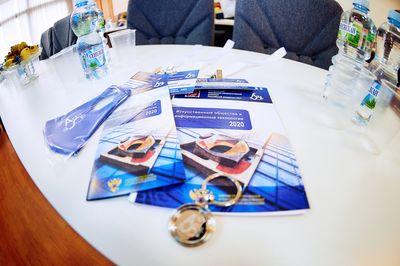Журнал "Полилог/Polylogos" включён в список ВАК
Conference "Artificial Societies and Information Technologies"

The History of Concepts: Epistemological Traditions and Methodological Innovations / Institute of World History, Russian Academy of Sciences
The Institute of World History of the Russian Academy of Sciences is pleased to invite you to participate in the international conference ‘The History of Concepts: Epistemological Traditions and Methodological Innovations’ that is taking place on December 17-18, 2020.

The organisers’ goal is to reactualise the well-established research academic ‘platform’ of the History of Concepts (Begriffsgeschichte) in Russian historical science, the implementation of which involves accomplishing the following specific objectives, namely:
- first, to initiate a large-scale, international, interdisciplinary constructive dialogue among researchers in various fields of the Humanities on the subject of the place and role of the "epistemological turn" in the methodology of the History of Concepts (Begriffsgeschichte);
- and, second, the resumption of systematic work in the field of Begriffsgeschichte using ‘Russian material’ through the efforts of an international collaboration of historians, philosophers, theologians, linguists and representatives of other branches of the Humanities.
Proposals might address, but are not limited to, any of the following topics:
- Theories and methods in the History of Concepts: traditions and innovations.
- Interdisciplinarity and challenges of developing a common conceptual apparatus in complex research.
- Conceptual history and alternative approaches to historical semantics and intellectual history.
- Imperial history as Begriffsgeschichte.
- Historical semantics of Modernity and Postmodernity.
- Concepts relating to time and temporality.
Individual proposals to be sent to begriffsgeschichteconference@gmail.com by November 1, 2020. Proposals for individual papers should not be longer than 200-250 words; the speaker’s name, institutional affiliation, academic degree, and e-mail should be included.
Proposals for panels to be sent to begriffsgeschichteconference@gmail.com by October 20, 2020. Proposals should not exceed 100 words; the moderator’s name should be included together with the names of at least 3 speakers as well as their institutional affiliations, academic degrees, and e-mails.
The conference is to be held on-line.
The conference’s languages are Russian and English.
Papers, selected by the organising сommittee, will be suggested for publication in the Journal of Education and Science “ISTORIYA” (“History”; WoS), in 2021.
По результатам конференции планируется публикация лучших текстов в ЭНОЖ «История» в 2021 г.Конференция "ИСКУССТВЕННЫЙ ИНТЕЛЛЕКТ В НОВОЙ КОММУНИКАТИВНОЙ РЕАЛЬНОСТИ"
Доклад А.А. Кара-Мурзы, посвященный 130-летию Бориса Пастернака, 11 февраля 2020 г.

11 февраля 2020 г. с докладом «Россия как «Север»: проблемы цивилизационной идентичности в философии Бориса Пастернака (к 130-летию со дня рождения)» выступит Алексей Алексеевич Кара-Мурза – доктор философских наук, профессор, руководитель сектора философии российской истории Института философии РАН.
11 февраля, 15:00 (Институт философии, ауд. 416)
Программы повышения квалификации ГАУГН
Государственный академический университет гуманитарных наук (ГАУГН) при поддержке Министерства науки и высшего образования Российской Федерации в рамках федерального проекта «Новые возможности для каждого» национального проекта «Образование» начинает программы повышения квалификации для научно-педагогических работников и работников организаций-работодателей по трем профессиональным программам:
Особенности профессионального развития научно-педагогических работников в условиях реализации непрерывного образования — программа ориентирована на получение практических навыков организации образовательного процесса и контроля качества образования, анализа нормативно-правовой документации профессионального образования, применения психолого-педагогических технологий, научно-методических и педагогических технологий в образовательном процессе.
Современные информационные технологии в высшем образовании и науке — программа нацелена на формирование компетенций в области современных информационных технологий, направленных на повышение профессионального уровня в рамках имеющейся квалификации, необходимых для формирования и реализации образовательного процесса по различным видам программ непрерывного образования и научной деятельности.
Философия науки и техники — программа направлена на повышение профессионального уровня в области философского анализа современной науки и наукоемких технологий, а также для преподавания с учетом мировоззренческих и методологических тенденций развития науки и техники и перспективных направлений научных исследований.
Ректор ГАУГН Денис Фомин-Нилов отметил, что университет планирует привлекать к преподаванию ведущих ученых и экспертов. «Идея нацпроекта «Образование» активно поддерживается руководством и сотрудниками университета, ведь в текущих условиях технического прогресса, быстрого устаревания информации и компетенций необходимо создавать образовательные площадки, которые позволят сотрудникам науки и образования оставаться конкурентоспособными и востребованными. Именно поэтому, во время подготовки к конкурсу, мы решили предоставить будущим слушателям максимальное количество преимуществ. Кроме получения образования, наш университет несет в себе и мощную научную компоненту».
В ходе проекта лаборатория исследований блокчейна в образовании и науке ГАУГН проведет тестирование платформы для корпоративного онлайн-образования Argon, разработанной на основе гибридной блокчейн-платформы ThePower. Уникальность платформы состоит в проведении интерактивных семинаров, когда слушатели курса работают не с видеозаписью лекции, а с преподавателем в онлайн-режиме. Записи семинаров ведутся в автоматическом режиме, доступны сразу же после завершения мероприятий. Данные обо всех действиях обучающихся, в том числе о прослушанных курсах и качестве выполненных заданий, фиксируются в распределенном реестре и являются основой для их цифровых портфолио.
Программы повышения квалификации ГАУГН включают стажировки слушателей в инновационных и высокотехнологичных центрах региона и содержат практико-ориентированный прикладной компонент, видеокурсы, текстовые и презентационные материалы.
Заявки на обучение принимаются до 29 ноября 2019 г. Получить более полную информацию о реализации программ можно на официальном сайте ГАУГН.
Источник: Министерство науки и высшего образования Российской Федерации
The World System of Socialism: Global and Regional Aspects

On October 3–4, 2019, the Institute of World History of the Russian Academy of Sciences will hold an international scientific conference “The World System of Socialism: Global and Regional Aspects”, dedicated to the 70th anniversary of the establishment of the Council for Mutual Economic Assistance (CMEA) in January 1949.
The conference is aimed to illuminate the forty-year period of the CMEA history from the standpoint of modern historical science, combining the efforts of different methodological schools and research areas. Participants' reports will discuss the key problems of development of the trans-regional economic organization of the “socialist community” countries in the context of the Cold War and the confrontation of two military and political blocs on the world stage.
The information partners of the conference are State Academic University for the Humanities (GAUGN) and leading scientific periodicals on History — “Modern and Current History” and the Electronic Scientific and Educational Journal “History”.
“Artificial Societies” included in the list of the Higher Attestation Commission [CLONE]
On March 26, 2019, the electronic scientific journal “Artificial Societies” (artsoc.jes.su) entered the Higher Attestation Commission List — a list of leading peer-reviewed scientific journals where the Higher Attestation Commission of Russia recommends to publish the main scientific results of the thesis for the candidate and doctor of science degrees.
The idea of creating an electronic academic journal devoted to researches in the field of agent-based computer models (ABM) emerged in 2006 as part of the activity of the Agent Modeling Laboratory of the Central Economic Mathematical Institute of the Russian Academy of Sciences (RAS). The chief editor of the journal is Valery Makarov, the Academician of the RAS. In 2016, with the support of the State Academic University of the Humanities (GAUGN), the journal was transferred to the new technological platform JES (Journal of Education and Science), which meets modern standards in the field of scientific periodicals in the best way.
Today, the scientific journal “Artificial Societies” provides twenty-four-hour access for readers — scientists, teachers, students — to publications in a wide variety of scientific fields related to the digitalization of the economy, multi-agent modeling in the natural and human sciences and the development of an artificial intelligence. The high scientific level of the work on reviewing and preparing materials published in the journal is assured by the team of the Central Economic Mathematical Institute of the Russian Academy of Sciences.
The Editorial invites authors to publish their articles!
“Artificial Societies” included in the list of the Higher Attestation Commission

On March 26, 2019, the electronic scientific journal “Artificial Societies” (artsoc.jes.su) entered the Higher Attestation Commission List — a list of leading peer-reviewed scientific journals where the Higher Attestation Commission of Russia recommends to publish the main scientific results of the thesis for the candidate and doctor of science degrees.
The idea of creating an electronic academic journal devoted to researches in the field of agent-based computer models (ABM) emerged in 2006 as part of the activity of the Agent Modeling Laboratory of the Central Economic Mathematical Institute of the Russian Academy of Sciences (RAS). The chief editor of the journal is Valery Makarov, the Academician of the RAS. In 2016, with the support of the State Academic University of the Humanities (GAUGN), the journal was transferred to the new technological platform JES (Journal of Education and Science), which meets modern standards in the field of scientific periodicals in the best way.
Today, the scientific journal “Artificial Societies” provides twenty-four-hour access for readers — scientists, teachers, students — to publications in a wide variety of scientific fields related to the digitalization of the economy, multi-agent modeling in the natural and human sciences and the development of an artificial intelligence. The high scientific level of the work on reviewing and preparing materials published in the journal is assured by the team of the Central Economic Mathematical Institute of the Russian Academy of Sciences.
The Editorial invites authors to publish their articles!
Форум молодых политологов
8 декабря 2018 года на базе Финансового университета при Правительстве Российской Федерации открылся V Всероссийского Форума молодых политологов.В мероприятии приняли участие молодые исследователи в области политической науки со всех уголков нашей необъятной страны. В рамках Форума было проведено 35 заседаний и круглых столов, поднимающих чрезвычайно актуальные проблемы политической науки, требующих решения уже сейчас. Главный редактор ЭНОЖ Nauka.me Татьяна Шевченко выступила экспертом по проблемам и перспективам научных журналов для молодых исследователей.
